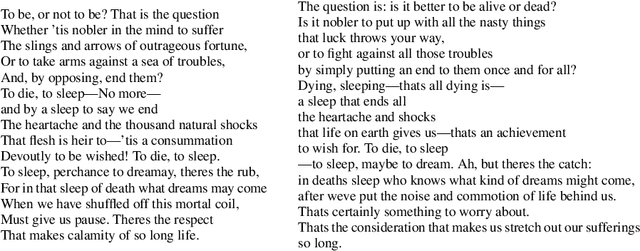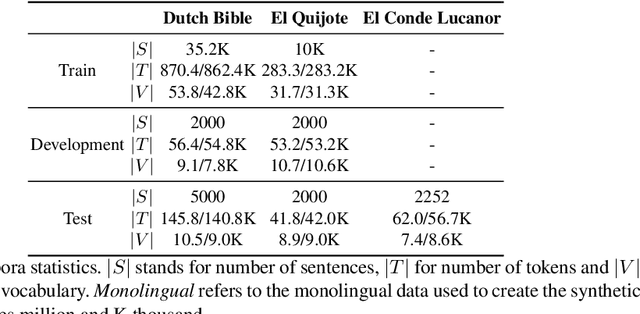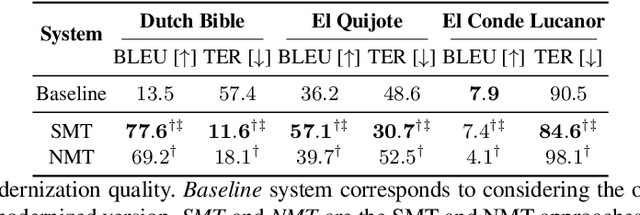An Interactive Machine Translation Framework for Modernizing Historical Documents
Paper and Code
Oct 08, 2019



Due to the nature of human language, historical documents are hard to comprehend by contemporary people. This limits their accessibility to scholars specialized in the time period in which the documents were written. Modernization aims at breaking this language barrier by generating a new version of a historical document, written in the modern version of the document's original language. However, while it is able to increase the document's comprehension, modernization is still far from producing an error-free version. In this work, we propose a collaborative framework in which a scholar can work together with the machine to generate the new version. We tested our approach on a simulated environment, achieving significant reductions of the human effort needed to produce the modernized version of the document.
 Add to Chrome
Add to Chrome Add to Firefox
Add to Firefox Add to Edge
Add to Edge